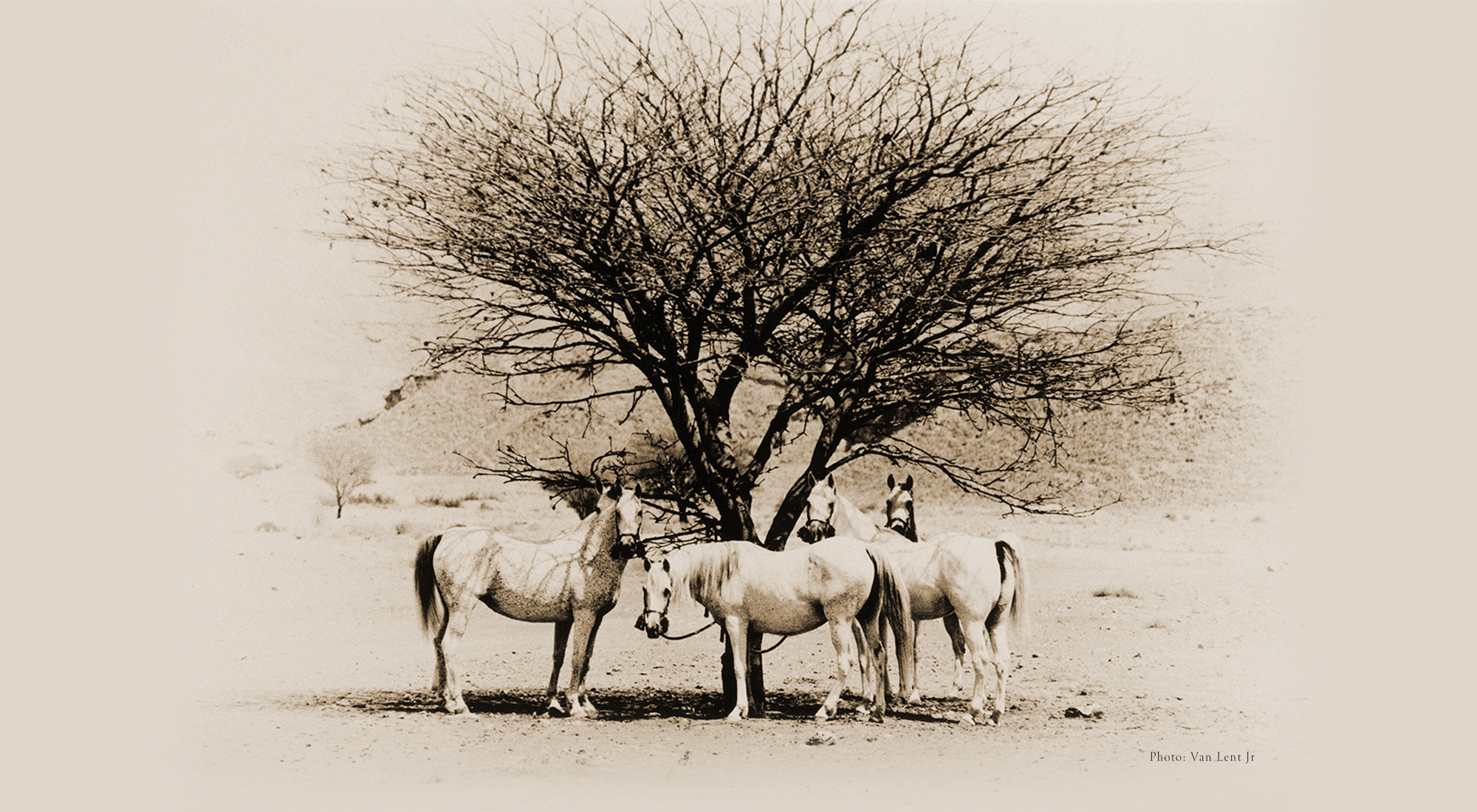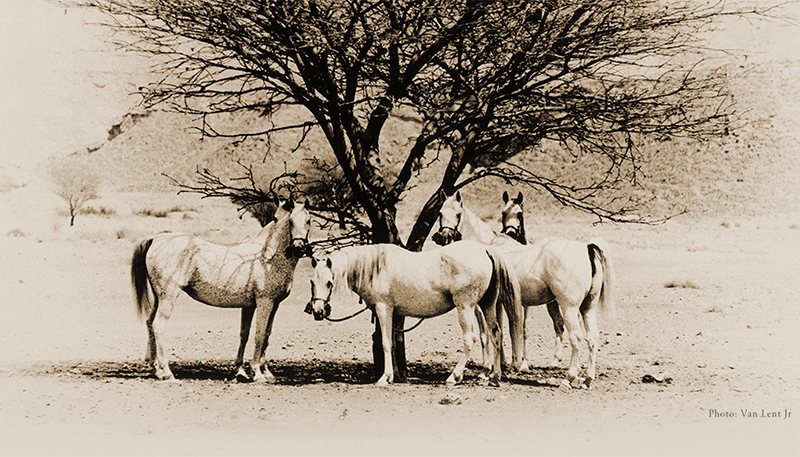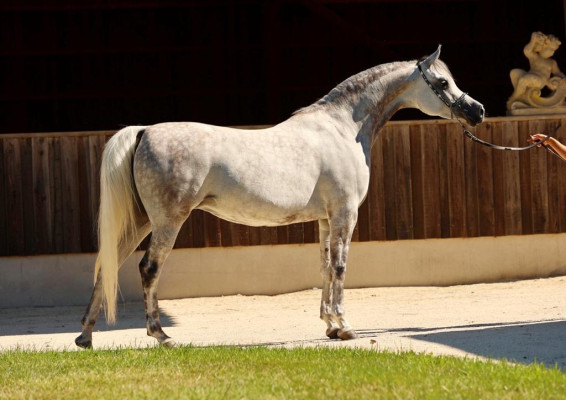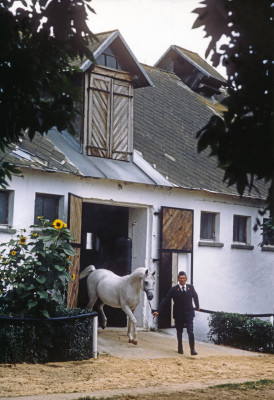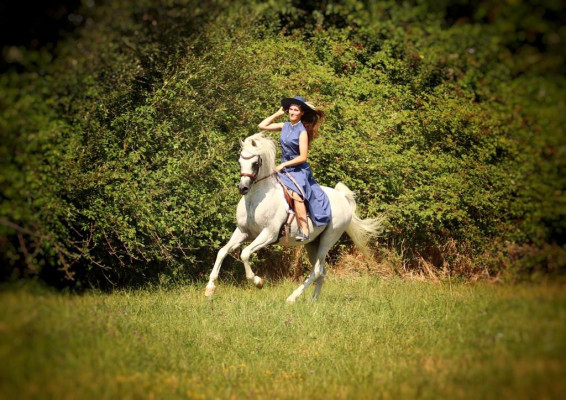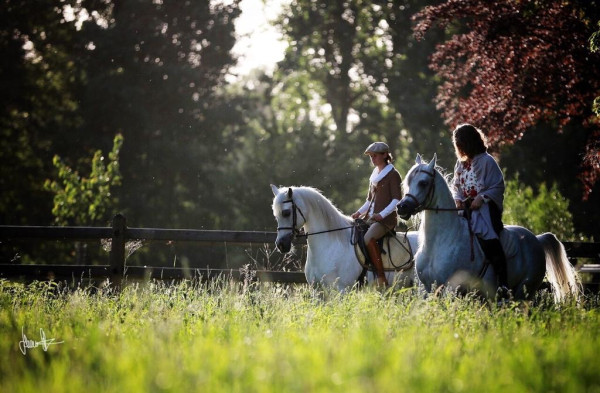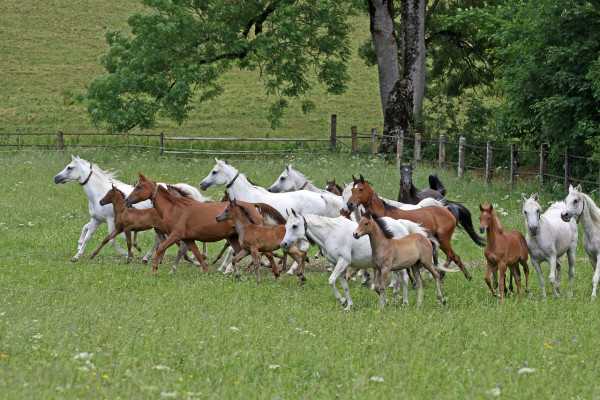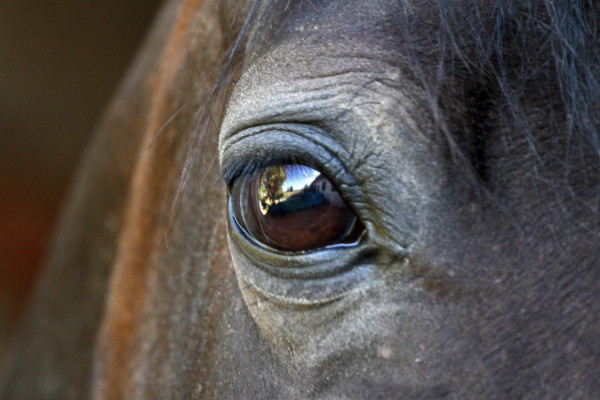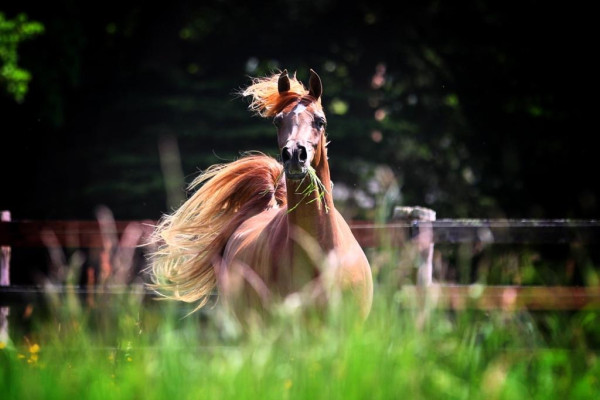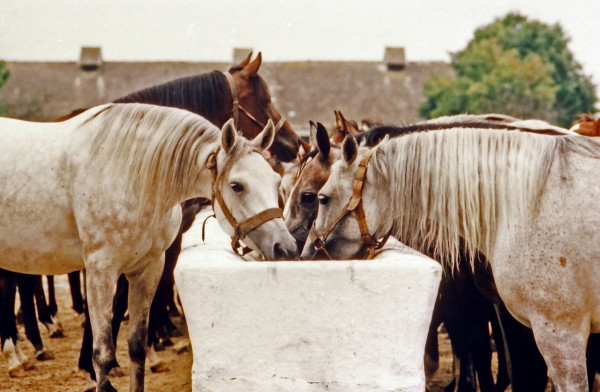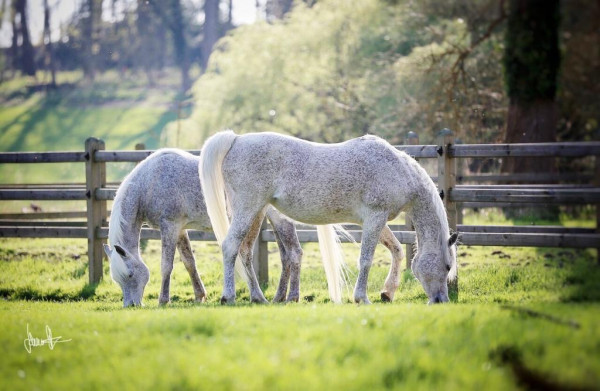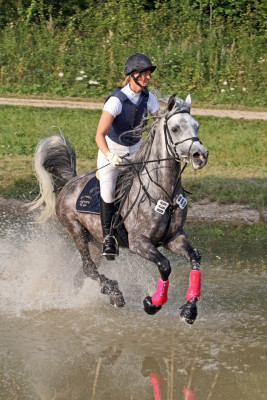Whispers from the Tent — From "The Horses of the Sahara and the Manners of the Desert"
The Arabs' desire to find, in their horse, a devoted friend. With them he leads, so to speak, a domesticated life, in which, as in all domestic life, women play a conspicuous part — that, in fact, of preparing by their gentleness, vigilance, and unceasing attention, the solidarity that ought to exist between man and the animal on a journey or campaign far from the dwelling place. It is the rider who occupies himself with his horse. But in the encampment under the canvas, and in time of repose, it is the wife who directs, superintends and feeds the noble companion in arms who so frequently augments the reputation of her husband while supplying the wants of her children. In the morning it is the wife who brings him his food, and tends him, and if possible, washes his mane and tail. If the ground on which he stands happens to be uneven, broken or covered with stones, she removes him to a spot convenient for his repose, and the just disposition of his weight. She caresses him, passes her hand gently over his neck and face and gives him bread or dates. She says to him in a soft and tender tone, “One day thou shalt save us out of the hand of our enemies and fill our tent with booty.”
— From “The Horses of the Sahara and the Manners of the Desert”



